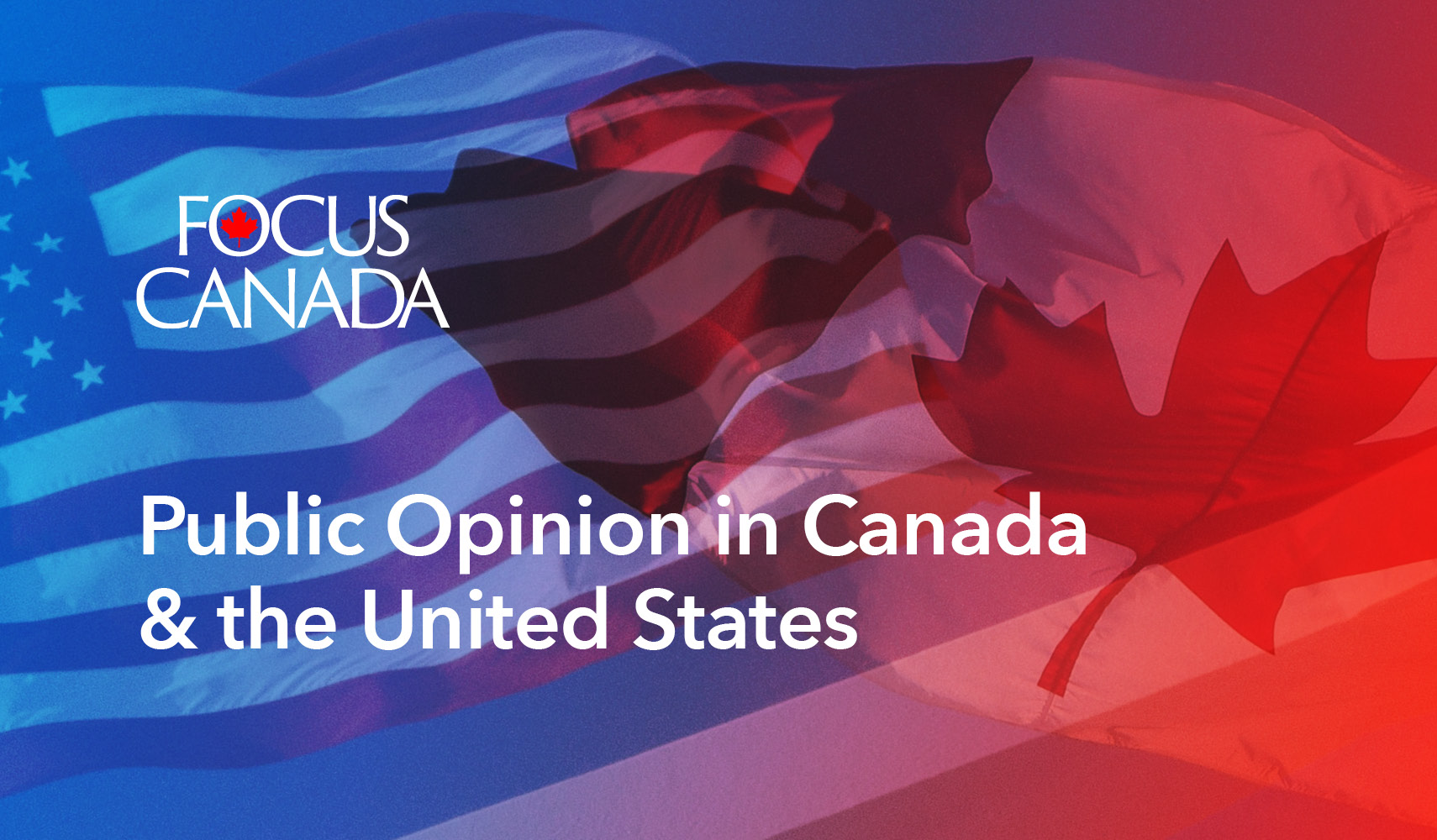Public Opinion in Canada and the United States

Public Opinion in Canada and the United States
The diminishing concern about the impact of free trade on Canada’s cultural identity coincides with some sharp differences of opinion between Canadians and Americans on prominent social issues.As part of its Focus Canada public opinion research program (launched in 1976), the Environics Institute updated its research on Canadian attitudes about the United States. It also asked questions on social issues in parallel surveys in both Canada and the U.S. The Canadian survey is based on telephone interviews conducted (via landline and cellphones) with 2,000 Canadians between September 6 and 30, 2022. A sample of this size drawn from the population produces results accurate to within plus or minus 2.2 percentage points in 19 out of 20 samples. The American survey is based on telephone interviews conducted (via landline and cellphones) with 1,001 adults in the continental United States who are registered voters between September 21 and 26, 2022. A sample of this size drawn from the population produces results accurate to within plus or minus 3.1 percentage points in 19 out of 20 samples.
Executive summary
The presidency of Donald Trump put considerable strain on the historically strong relationship between Canada and the United States. It did so not only by creating friction between the two governments on issues such as trade, but also by rapidly eroding the Canadian public’s traditionally favourable view of their neighbours – and shining a spotlight on growing differences in the values of the two societies.
During the latter decades of the 20th century, a majority of Canadians held a favourable view of the United States – despite the occasional disagreement between Ottawa and Washington on particular policy issues. Canadian opinions about the United States became more divided under the Presidency of George W. Bush, but returned to historical norms after the election victory of Barak Obama in 2008. But favourable opinions fell dramatically and reached new lows after 2016 and the election victory of Donald Trump. The latest Focus Canada survey shows that Canadians’ opinion of the United States improved somewhat with the election of Joe Biden – but not to the levels reached during the administrations of previous Democratic Party presidents.
While general opinions of the United States have become more negative over time, views of free trade with the United States have become more positive. In fact, Canadians have never been as supportive of North American free trade as they are today. Over time, Canadians have become more convinced of the economic benefits of free trade, and less concerned about the potential loss of the country’s cultural identity or political independence. Moreover, the partisan divide on the issue has disappeared. Whereas the level of support for free trade among Conservatives was previously twice as high as that among supporters of the NDP, now the views of two groups of partisans are virtually identical.
The diminishing concern about the impact of free trade on Canada’s cultural identity coincides with some sharp differences of opinion between Canadians and Americans on prominent social issues. These differences are most stark on the issues of abortion and, especially, gun control – but they are also evident on questions relating to the role of government in reducing income inequality and protecting racial minorities. Moreover, American society is much more divided on such issues, both in terms of differences of opinion among racial groups, and in terms of partisan differences between Republicans and Democrats, or Conservatives and Liberals. While the extent of partisan division on these questions has grown in both countries, this growth is much more pronounced in the United States.
Canadians and Americans have at least one thing in common: in both countries, a large majority is satisfied with their standard of living. In both Canada and the United States, a smaller proportion – though still a majority (about three in five) – is also satisfied with opportunities to get ahead in their country. In this case, however, there has been a noticeable decline in satisfaction since the mid-1980s with prospects for social mobility in the U.S., but not so in Canada. Canadians and Americans are both much less satisfied with their system of government. But, as is the case with views on opportunities to get ahead, there has been a considerable decline in satisfaction with the American system of government in the U.S., whereas views in Canada about the Canadian system of government are virtually unchanged.
In contrast, when it comes to satisfaction with the treatment of the poor and the elderly, opinions have changed for the worse over time in Canada, but not the U.S. Whereas Canadians were previously much more likely to be satisfied in this area than Americans, this is no longer the case.
Finally, while very few Canadians support the idea of joining the United States, it is nonetheless notable that strong opposition to this idea has grown over the past three and a half decades.
Read the complete report
Like what you're reading? With our bi-monthly e-newsletter, you can receive even more with the latest details on current projects, news, and events at the institute.
Subscribe